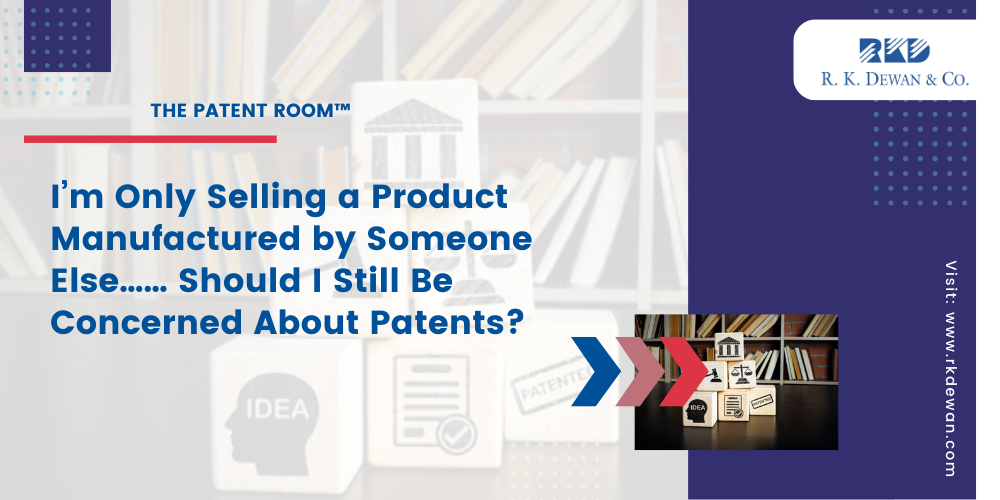In today’s marketplace, protecting ideas is just as critical as creating them. Patents define who has the legal right to make, sell, or profit from an innovation—and overlooking them can expose a business to serious risk.
This blog unpacks how patent law impacts sellers, entrepreneurs, and businesses on the ground. Instead of theory or legal jargon, we focus on practical scenarios, common mistakes, and steps you can take to protect your business from costly disputes.
Understanding IP is not just for lawyers and corporates; it is for anyone who dares to create.
1. When Assumptions Backfire
Let’s assume Mr. Sharma, a small but ambitious entrepreneur. His e-commerce business was growing steadily. He did not manufacture anything. He simply sourced consumer gadgets from local wholesalers and sold them through his online storefront.
One fine morning, he received a legal notice from a law firm claiming that one of the gadgets he sold, a smart irrigation controller, infringed a valid Indian patent. The notice demanded him to:
- stop selling the product immediately;
- remove all listings; and
- pay damages for prior sales.
Confused, Mr. Sharma responded:
“I don’t make this product; I just sell it. Why are you threatening me with legal action?”
But the notice was clear. And unfortunately for Mr. Sharma, the law was not on his side.
2. The Legal Reality – What the Indian Patent Act Says
Here’s the truth bomb: You don’t need to be the manufacturer to be liable for patent infringement.
Let’s break it down with reference to the Indian Patents Act, 1970.
Section 48 – Rights of Patentee
A patent gives the patentee the exclusive right to:
- Prevent third parties from making, using, offering for sale, selling, or importing the patented product or process without consent.
Yes, even “selling” or “offering for sale” infringes on the patentee’s rights.
So, in Mr. Sharma’s case, his act of selling the infringing product, even without knowing it was patented, still made him legally liable.
Indian law doesn’t distinguish between manufacturers and sellers when it comes to unauthorized commercial use of patented products.
3. Common Misconceptions Sellers Have
Myth 1: I didn’t make it; I’m just selling it → Still liable
Myth 2: The product is available widely online, so it must be safe → Others’ negligence doesn’t protect you
Myth 3: No one said anything so far → Patent owners often wait until sales grow before enforcing
Myth 4: I’ll blame my supplier → You can recover from them later, but you’ll still be sued first
4. How to Protect Yourself as a Seller
a. Due Diligence Before Listing
Ask your supplier:
- Is this product patented in India?
- Do they hold rights or licenses?
- Can they provide a non-infringement or clearance certificate?
If they’re unsure, that’s a red flag.
b. Strong Contracts with Indemnity Clauses
Include clauses where the supplier takes responsibility for any IP infringement claims and agrees to cover:
- Legal expenses;
- Damages;
- Product recall or takedown costs.
This won’t protect you from being sued, but it gives you a way to recover your losses.
c. Pay Heed to Cease-and-Desist Notices
If you receive a notice, don’t ignore it. The clock starts ticking once you’re aware of the alleged infringement.
- Remove listings temporarily.
- Consult an IP lawyer.
- Communicate with your supplier.
- A timely response can reduce your liability.
d. Maintain Product Records
Keep track of:
- Purchase invoices;
- Communications with your supplier; and
- Product datasheets.
These may help you argue a lack of willful infringement, possibly reducing damages.
e. The Business Perspective – Why Should You Care?
Think of it like this:
You run a high-reputation online store. Even a single product in your catalog can land you in a legal mess. You might get pulled into litigation, receive takedown notices, and have your seller profile flagged.
It’s not just about legal cost; it’s about reputation, credibility, and operational disruption. Large platforms like Amazon or Flipkart also have strict IP violation policies, and a single complaint can suspend your listings.
So, even from a purely business risk perspective, it makes sense to verify what you SELL.


